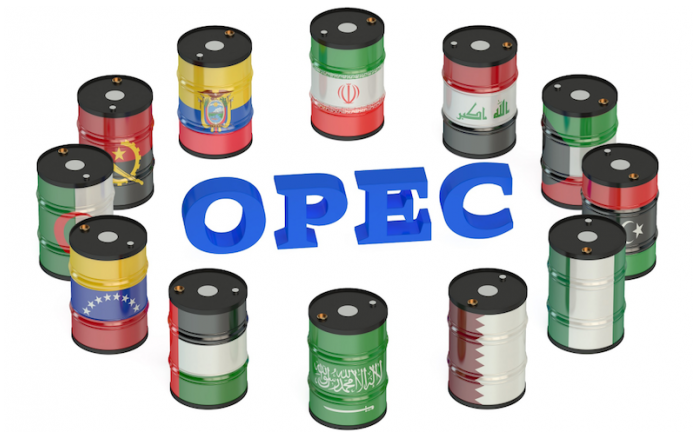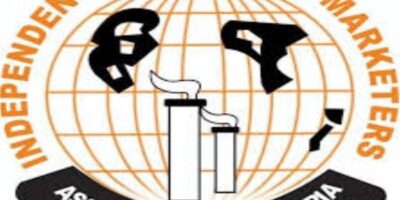FG Rejects Two Cargoes Of Adulterated Petrol Imported From Belgium

- STI SYMPHONY makes U-turn off coast of Guinea
- OPEC’s production drops by 700,000bpd
Following the circulation of adulterated petrol in Nigeria, which damaged vehicle engines last week, the federal government has turned back two tankers carrying petrol loaded in Antwerp, Belgium, and destined for Lagos, Flavision gathered.
This comes as the Organisation of Petroleum Exporting Countries (OPEC) and its allies have continued to produce crude oil below their production targets, with the group’s output falling by a record 700,000 barrels per day (bpd) below its collective quotas in January.
The off-specification fuel, it was learnt, was rejected amid the raging controversy over the bad fuel in circulation in the country, which led to the disruption of the country’s supply chain, resulting in long queues in filling stations across the country.
The current problematic supply of petrol, which grounded movements in Abuja, Lagos and some other parts of the country, was made worse by the shortage of inventory, according to the figures released by the sole importer, the Nigerian National Petroleum Corporation (NNPC).
As at yesterday, majority of filling stations in Abuja were shut even as motorists spent hours in the sun struggling to buy from the few that were open.
The imported cargoes were said to have high methanol content, while marketers were advised not to sell to consumers, after over 100 million litres were said to have been in circulation.
But quoting Refinitiv Eikon ship tracking and other sources, Reuters reported that the two tankers, STI SYMPHONY and VELOS DIAMANTIS, were turned back by the federal government against the backdrop of other petrol cargoes loaded in Antwerp for containing too much methanol.
According to a fixture list from a ship broker and Refinitiv Eikon data, Litasco chartered the STI SYMPHONY for January 15 to take 90,000 tonnes of petrol to West Africa.
The STI SYMPHONY loaded petrol in Antwerp around January 22 before sailing to Lagos, but has now been turned back, according to the Refinitiv Eikon ship tracking.
However, the tanker did a U-turn off the coast of Guinea on February and is now heading back to the Amsterdam-Rotterdam-Antwerp oil hub, Reuters reported.
According to the report, NNPC did not respond to a request for comment. Litasco had previously said it does not comment on trading activities and did not immediately respond to a query on the STI Symphony.
The VELOS DIAMANTIS, carrying 60,000 tonnes, and allegedly chartered by Mercuria, did a U-turn on February 4, after showing Lagos as its destination, Refinitiv Eikon ship tracking showed. A Mercuria source, however, said the company no longer owns the tanker’s cargo.
The NNPC had while labouring to absolve itself of complicity in the importation and distribution of millions of litres of the bad product into the country, named Belgium as the country of origin of the adulterated fuel.
Amid the damage done to vehicles in some states in the country, the federal government had vowed to investigate the matter with a view to bringing the culprits to book.
Group Managing Director of the NNPC, Mallam Mele Kyari, however, stated that from his investigation, the four petrol cargoes were imported by MRS, Emadeb/Hyde/AY Maikifi/Brittania-U Consortium and Oando.
All the companies mentioned, aside Duke Oil, the NNPC’s trading arm, have since denied complicity.
Ironically, Kyari had maintained that the cargoes’ quality certificates issued at the loading port in Belgium, by AmSpec Belgium, indicated that the product complied with the Nigerian specification.
Furthermore, he said the NNPC quality inspectors including GMO, SGS, GeoChem and G&G conducted tests before discharge, which showed that the cargo also met the country’s standard.
He stated that all defaulting suppliers had been put on notice for remedial actions, stressing that the NNPC would work with other stakeholders to take further necessary actions in line with subsisting regulations.
He did not explain what “further necessary action” would be taken even after saying that there was no national standard for methanol in the fuel imported into Nigeria.
The decision to reject the cargoes also came days after President Muhammadu Buhari expressed anger over the importation and circulation of the contaminated petrol in the country.
The President had therefore ordered that the Chief Executive Officer of the Nigerian Midstream and Downstream Petroleum Regulatory Authority (NMDPRA), Mr. Farouk Ahmed, be queried immediately.
NNPC had also in January announced that it received four tankers carrying unusable petrol that was loaded in Belgium by Litasco, the trading arm of Russia’s Lukoil, and sold to local traders.
The fuel was found to contain too much methanol and was removed from circulation, causing shortages nationwide.
Following the incident, the NNPC banned methanol content in future petrol deliveries. Previously, traders said Nigeria did not specify methanol content. Methanol is sometimes added to petrol in small amounts because it is a cheaper, and cleaner burning fuel that also optimises engine functioning.
Although methanol, in small amounts, is a regular petrol additive, the industry’s regulator said the supplier of the off-specification petrol was known but did not name the firm.
NNPC handles nearly all the imports through crude-for-fuel contracts, known as Direct Sale, direct Purchase (DSDP), with consortia of local and foreign oil firms.
Each consortia Flavision gathered, receives some quantities of crude oil in exchange for petrol.
Embattled Chief Executive Officer of the NMDPRA, Farouk Ahmed, during the week, stated that the NNPC had received a delivery of 300 million litres to close the supply gap created in the country by the withdrawal of the off-spec petrol.
The NMDPRA boss had further stated that the country currently has petrol that can last for 20 days, 10 days short of the usual 30-day reserve
OPEC’s Production Drops by 700,000bpd
Meanwhile, OPEC and its allies have continued to produce crude oil below their oil production targets, with the group’s output falling by a record 700,000 barrels per day (bpd) below its collective quotas in January.
An S&P Global Platts survey indicated that OPEC’s 13 countries raised output by 150,000 bpd from December, pumping 28.19 million bpd of crude, while the nine non-OPEC partners, led by Russia, only managed to add a meagre 10,000 bpd, producing 13.99 million bpd.
The cartel’s underperformance continued even as there appears to be no end in sight to the rising prices of oil occasioned by tightening supply and growing demand for the commodity, mainly on the back of growing tensions between Ukraine and Russia.
Oil traders have continued to be rattled by reports that a Russian invasion of Ukraine could take place within days and bid up oil prices to over $95 in large trading volumes.
Traders fear disruptions of oil and natural gas flows from Russia to Europe in case a war begins, either directly from blown-up pipelines or halted flows, or indirectly when energy trade gets caught up in sanctions.
Russia delivers Europe with one-third of its natural gas needs and exports around 2 million bpd of both crude oil and refined products to European nations.
According to the OPEC’s Monthly Oil Market Report (MOMR) for January, released this week, Nigeria struggled to pump 1.399 million bpd out of the total allocation, quoting primary (direct) sources.
This was in contrast to December 2021, when it pumped 1.197 million barrels per day and November when it was only able to produce 1.275 million bpd.
The biggest increases in crude oil production came from Nigeria, Saudi Arabia, the United Arab Emirates (UAE), and Kuwait, while output declined in OPEC’s second-largest producer Iraq, as well as in Venezuela and Libya.
But in all, S&P stated that 14 out of the 18 members with quotas underproduced their targets, pushing OPEC+ compliance to 120.8 per cent, the highest since the group instituted record output cuts in April 2020 to pull the oil market out of its pandemic crash.
Despite strong gains from the group’s core Gulf members and Russia, disruptions in several OPEC+ countries, including Venezuela, Kazakhstan, Libya and Iraq, limited the bloc’s growth in January, it stated.

Justin Nwosu is the founder and publisher of Flavision. His core interest is in writing unbiased news about Nigeria in particular and Africa in general. He’s a strong adherent of investigative journalism, with a bent on exposing corruption, abuse of power and societal ills.













